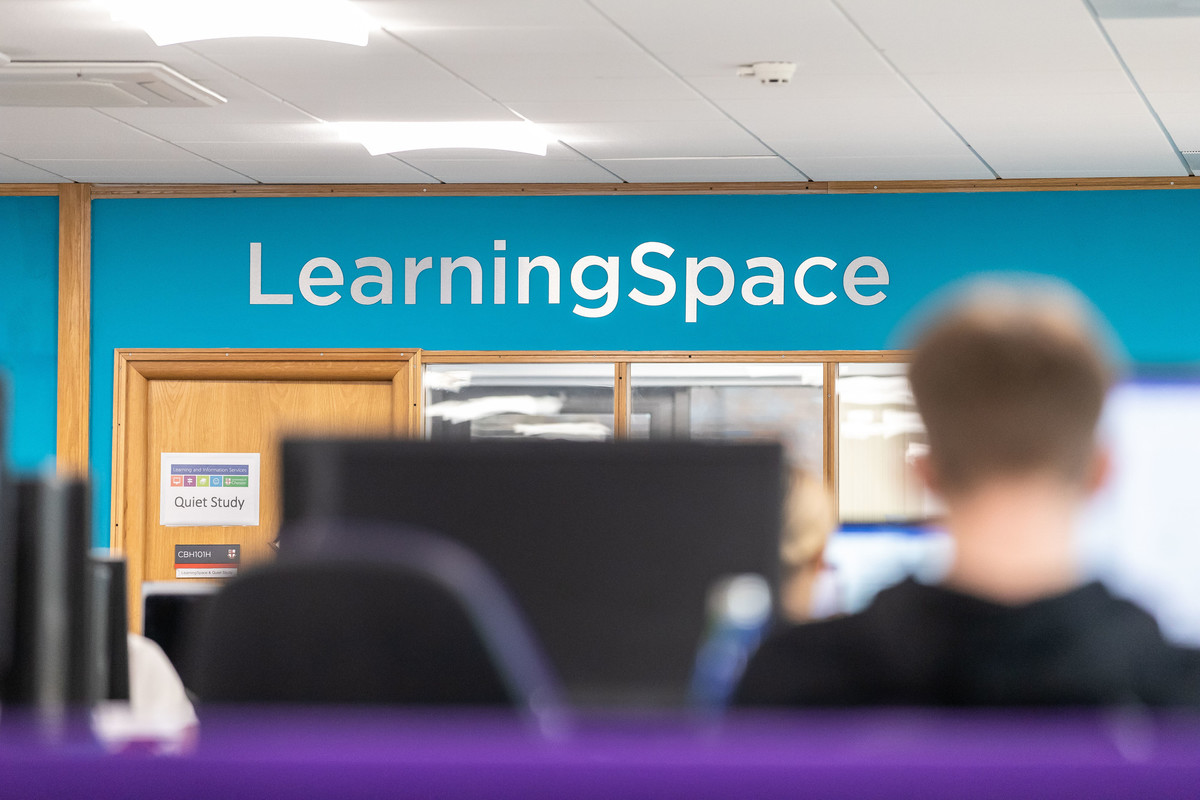Professional Development by Negotiated Studies BA/BSc (Hons)

You are viewing Course summary
Course Summary
Our course will enable you to 'learn while you earn'. We recognise that in the modern world learning does not just take place in classrooms and lecture theatres – the workplace itself is increasingly an important site of knowledge generation. So if you are a working professional and feel that you deserve academic reward for your hands-on learning through your everyday work, this may be the course you are looking for. And as it is focused on knowledge and skills acquisition, it can also significantly enhance your professional development and career progression.
Chester has specialised in this type of flexible provision for 25 years and has hugely experienced staff who can guide you to create your own professional development pathway that can lead to a degree. The course is ideal for distance learners too, and offers flexible and adaptable study for those seeking professional development opportunities, and for whom customised courses relating directly to the work setting are the most effective way of achieving their objectives. The framework offers a range of awards from undergraduate Level 4 up to – and including – Master's level.
What You'll Study
Our Work Based and Integrative Studies (WBIS) degree offers part-time, personalised learning that recognises your expertise and rewards you for prior experiential learning. Our course will enable you to 'learn while you earn' and is designed for busy professionals.
The first module – called Self Review and Negotiation of Learning – will help you to undertake a self-audit and complete claims for prior learning (if appropriate) where learning in the workplace can be rewarded academically. It also provides the opportunity for needs analysis and action planning, in order to enable you to successfully create an individual pathway of study and gain an award title that meets your learning needs. This award title will relate to your area of professional practice.
Subsequent modules are negotiated and typically allow you to negotiate work-based projects that can have real business impact and where you will be professionally advised by one of our expert academics. You will often be able to use artefacts that you have generated as part of your working life towards the module assessments.
Learning pathways at all levels tend to be a combination of claims for prior experiential learning, where relevant, and Negotiated Experiential Learning (such as current work based projects and similar). There may also be the opportunity, if practicable, to integrate into your chosen pathway other relevant topics from the University bank of modules.
The course typically ends with a module called Exit Review and Forward Planning, which enables you not only to take stock of your learning experiences but also plan your future professional learning and career development.
The information listed in this section is an overview of the academic content of the course that will take the form of either core or option modules and should be used as a guide. We review the content of our courses regularly, making changes where necessary to improve your experience and graduate prospects. If during a review process, course content is significantly changed, we will contact you to notify you of these changes if you receive an offer from us.
Our course is a blended learning experience and can involve workshop-led modules, online tuition and experiential learning at work (such as work-based projects). It is flexible, and within certain agreed parameters you can work at your own pace.
There are no formal exams. You will be assessed through a variety of formats – for example, reflective assignments, portfolios, reports, presentations, and dialogue assessment.
Entry Requirements
There are no formal entry requirements for undergraduate courses, although determination, commitment and self direction are needed.
Students from countries outside the UK are expected to have entry qualifications roughly equivalent to UK A Level for undergraduate study and British Bachelor's degree (or equivalent) for postgraduate study. To help you to interpret these equivalents, please click on your country of residence to see the corresponding entry qualifications, along with information about your local representatives, events, information and contacts.
We accept a wide range of qualifications and consider all applications individually on merit. We may also consider appropriate work experience.
English Language Requirements
- IELTS Academic: Undergraduate: 6.0 (minimum 5.5 in each band)
- Postgraduate: 6.5 (minimum 5.5 in each band)
For more information on our English Language requirements, please visit International Entry Requirements.
Fees and Funding
£9,535per year for a full-time course (2025/26)
Our full-time undergraduate tuition fees for Home students entering University in 2025/26 are £9,535 a year, or £1,590 per 20-credit module for part-time study.
You can find more information about undergraduate fees on our Fees and Finance pages.
Students from the UK, Isle of Man, Guernsey, Jersey and the Republic of Ireland are treated as Home students for tuition fee purposes.
Students from countries in the European Economic Area and the EU will pay International Tuition Fees.
Students who have been granted Settled Status may be eligible for Home Fee Status and if eligible will be able to apply for Tuition Fee Loans and Maintenance Loans.
Students who have been granted Pre-settled Status may be eligible for Home Fee Status and if eligible will be able to apply for Tuition Fee Loans.
£14,450*per year for a full-time course (2025/26)
The tuition fees for international students studying Undergraduate programmes in 2025/26 are £14,450 per year for a full-time course. This fee is set for each year of study.
The University of Chester offers generous international and merit-based scholarships, providing a significant reduction to the published headline tuition fee. You will automatically be considered for these scholarships when your application is reviewed, and any award given will be stated on your offer letter.
For courses with a Foundation Year, the tuition fees for Year 1 are £10,750 and £14,200 for Years 2-4 in 2025/26.
For more information, go to our International Fees, Scholarship and Finance section.
Irish Nationals living in the UK or ROI are treated as Home students for Tuition Fee Purposes.
Your course will involve additional costs not covered by your tuition fees. This may include books, printing, photocopying, educational stationery and related materials, specialist clothing, travel to placements, optional field trips and software. Compulsory field trips are covered by your tuition fees.
If you are living away from home during your time at university, you will need to cover costs such as accommodation, food, travel and bills.
Course specific additional costs
Some modules include trips to regional places of worship. Entry fees for compulsory fieldtrips are covered by your tuition fees but there may be additional travel costs. As a guide, in 2025, a train fare to Liverpool cost £15.20 and a train fare to Manchester cost £18.60.
The University of Chester supports fair access for students who may need additional support through a range of bursaries and scholarships.
Full details, as well as terms and conditions for all bursaries and scholarships can be found on the Fees and Finance section of our website.
Your Future Career
Job Prospects
Students are professionals across a range of practice areas, from nursing, teaching and IT, through to public policy, finance, and a wide range of management spheres. Many students go on to significantly enhance their careers through participation in the programme and the professional development opportunities it offers.
Careers service
The University has an award-winning Careers and Employability service which provides a variety of employability-enhancing experiences; through the curriculum, through employer contact, tailored group sessions, individual information, advice and guidance.
Careers and Employability aims to deliver a service which is inclusive, impartial, welcoming, informed and tailored to your personal goals and aspirations, to enable you to develop as an individual and contribute to the business and community in which you will live and work.
We are here to help you plan your future, make the most of your time at University and to enhance your employability. We provide access to part-time jobs, extra-curricular employability-enhancing workshops and offer practical one-to-one help with career planning, including help with CVs, applications and mock interviews. We also deliver group sessions on career planning within each course and we have a wide range of extensive information covering graduate jobs and postgraduate study.













